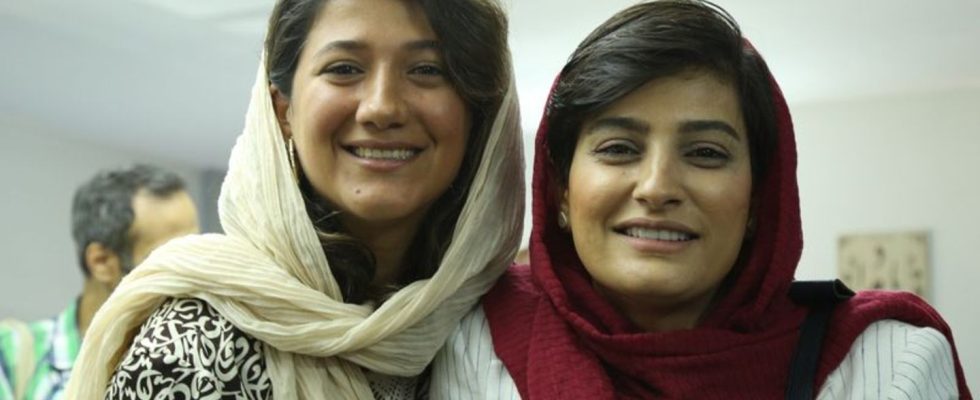Justice
Award-winning Iranian journalists released on bail
The journalists Nilufar Hamedi (l) and Elaheh Mohammadi (r) have been released. photo
© Mehrdad Aladin/dpa
Elaheh Mohammadi and Nilufar Hamedi are charged in Iran with national security violations. UNESCO honored them because of their research. Both are now out on bail.
According to media reports, award-winning Iranian journalists Elaheh Mohammadi and Nilufar Hamedi are on the scene Released on bail. As their employers, the newspapers Shargh and Hammihan, reported on Sunday, the two women were allowed to leave the notorious Ewin Prison. Iran’s journalists’ association criticized the amount of the deposit, which was the equivalent of around 180,000 euros.
Mohammadi’s sister Elnas published a video on the X platform (formerly Twitter) that shows the two journalists hand in hand and beaming with joy. Hamedi’s husband, Mohammed Hussein Adshorlu, posted a photo showing him arm in arm with his wife. The journalists were imprisoned for more than 400 days. According to the state news agency Irna, the two women were banned from leaving the country.
This is what they are accused of
A revolutionary court sentenced Hamedi to seven years in prison in October and Mohammadi to six years in prison in connection with the nationwide protests in autumn 2022. Both journalists were accused of collaborating with the United States and charged with national security violations. Hamedi and Mohammadi were able to appeal against their verdict.
The women were among the first to report the death of the Iranian Kurdish woman Jina Mahsa Amini in autumn 2022. Moral watchdogs had violently arrested the young woman because of an allegedly ill-fitting headscarf, Amini fell into a coma and died just a few days later on September 16, 2022. Hamedi was researching in the hospital as a journalist for the newspaper “Shargh” at the time of death and published a photo of the woman grieving parents that went around the world.
The case was heard before a notorious revolutionary court in Tehran, whose presiding judge, Abolghassem Salawati, is known for particularly harsh sentences. The man has been subject to sanctions by the EU for more than ten years. As part of the recent wave of protests, Salawati handed down several death sentences against demonstrators.
The case received a lot of international attention. While Hamedi and Mohammadi were in prison, UNESCO honored the women in absentia with the UN cultural organization’s Press Freedom Prize for their reporting at the beginning of May.

